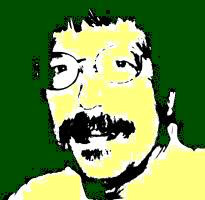As reported in my earlier post, the General Education Council at Oswego has been reviewing and approving, or not, computer and information literacy infusion plans for our major programs.
The infusion of the "basic operations of personal computer use" learning outcome was nearly taken for granted because of the widespread use of word processing, online searching, spreadsheets and computer-based presentations. The only issue was whether our faculty are prepared to assist students and provide constructive feedback in the use of tools that are not always well used by faculty.
In trying to make sense of the other SUNY General Education learning outcomes (1999) for Computer and Information Management, the Council resolved that the main reason to set the outcomes about research practices apart from related outcomes in Writing and Critical Thinking in 2013 is to emphasize the use of computers in those practices, especially in regard to managing and analyzing data. In one extreme case, the Council used the terminology "numerical data, be it quantitative or qualitative." In the sciences and social sciences, this presented no problems, and in fact the elegance of some of the science plans probably inspired this position.
However, this insistence on the use of computer tools for analysis of data has made it almost impossible for programs in the humanities to officially infuse computer literacy in their courses, even though they have information literacy practice integrated into almost all of their courses and use computers widely for searching, reading and writing (and viewing and presenting). The offering of a digital humanities version of our Computer Science 101 course has made it sensible and attractive for the history and criticism programs to simply require that course instead of getting approval for an infusion plan. That is because the primary source material for history and criticism can be easily and meaningfully digitized even when the scholars are mainly benefitting from the digital projects rather than engaged in the digitizing as a part of their own professional practice.
The one discipline that is left hanging is Philosophy. It is not that important connections and collaborations between philosophy and computing don't exist--logic, artificial intelligence and cognitive science can be all about philosophy and computing. It's that the work of philosophy is theory and does not at its core work with the kind of data that scientists use, or even with the kind of accurate and authentic representation of texts and objects that are important in history and criticism. Philosophy's counterpart to data appears to be arguments that are to be analyzed on their own. Any computer assistance to that analysis is very simple and merely a help. Computer use is ancillary and remains far from the authentic practices of philosophers. It remains to be seen how Philosophy and the General Education Council will deal with the Computer and Information Literacy requirement.
Subscribe to:
Post Comments (Atom)




No comments:
Post a Comment